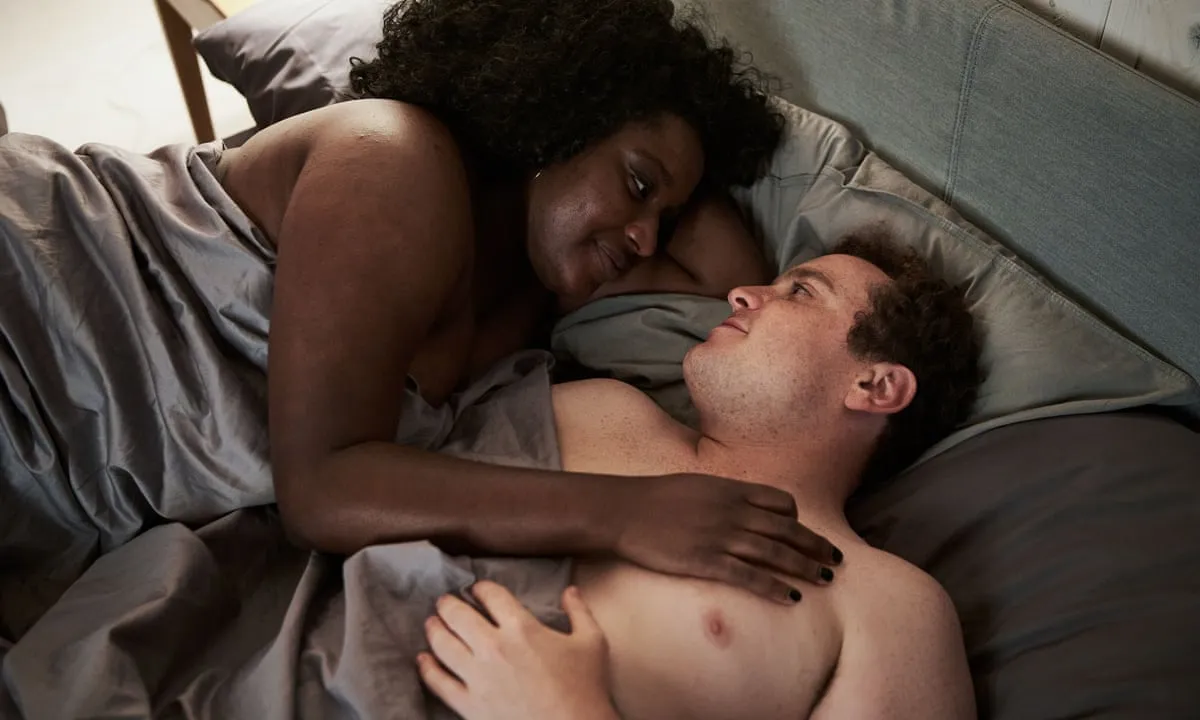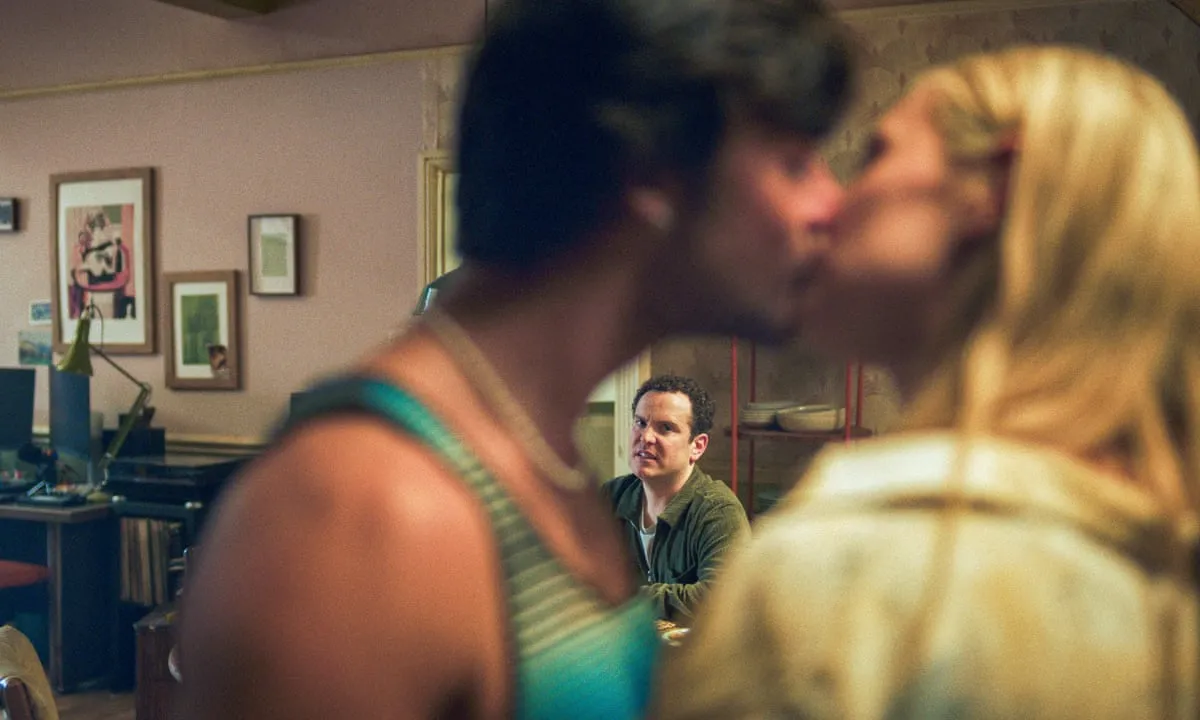“Cheaters” returns to screens with its trademark blend of raw honesty and comedic sensitivity. It delves into the messy aftermath of romantic betrayal. This BBC series transforms the usual rom-com scene by removing romantic ideals and replacing them with brutally honest storytelling.
Season two begins six months after season one’s spectacular ending, in which Josh and Fola’s passionate affair was brutally revealed. No longer bound by their former relationships, they are now seeking to negotiate a true connection while dealing with the emotional consequences of their adultery. In this complex narrative, their old partners, Esther and Zack, continue to play minor but important roles.
The series continues challenging romantic comedy norms, portraying love as a hard, sometimes uncomfortable journey of human connection rather than a spotless fairytale. With its unique short-form episodes and unabashed exploration of desire, remorse, and psychological growth, “Cheaters” provides a refreshingly modern perspective on current relationships.
The show focuses on Josh and Fola’s blossoming relationship, delving into their struggles: her feeling stifled, his fear about preserving passion, and both characters’ attempts to build something true on a foundation of betrayal. Their relationship evolves into a complex exploration of attraction, commitment, and the difficult journey of regaining trust.
Navigating Love’s Turbulent Waters: “Cheaters” Season 2 Explored
Josh and Fola attempt to transform their intense connection into a legitimate partnership six months after their torrid affair—a journey packed with unexpected hurdles. The electricity that previously marked their clandestine passion has now been exposed to the harsh light of everyday reality, putting their compatibility to the test beyond stolen moments and secret rendezvous.
Fola struggles to feel emotionally limited, with earlier traumas such as online image violations and relationship rejections creating invisible barriers. Josh, on the other hand, struggles with an almost neurotic anxiety that their connection may lose its first transgressive pleasure. Their relationship evolves into a raw study of love—not as a fairy tale, but as a messy, intricate struggle between two imperfect people.
The narrative cleverly builds tension by having their ex-partners remain around. Esther, who is now traveling and exploring self-discovery, and Zack, who has discovered an unconventional living arrangement with a curious older couple, are both peripheral but important characters in this complex emotional terrain.
The supporting characters offer complexity to the connection tapestry. Fola’s sister Tiwa emerges as a refreshingly pragmatic voice, literally acting in charged situations (for example, deploying a fire extinguisher to separate too amorous characters). Meanwhile, Josh’s sister Nina and her partner Georgia offer a different viewpoint on modern relationship issues, as they navigate their struggles with impending motherhood and intimacy.
The series continues to challenge romantic comedy stereotypes by portraying love as a nuanced, continuing discussion rather than a simple resolution. Each character’s journey feels distinct—raw, painful, and utterly true.
Intimate Portraits: The Nuanced Performers of “Cheaters”
At the heart of “Cheaters” is a cast of characters whose complexity surpasses usual romantic comedy tropes. Josh, played by Joshua McGuire, carefully balances lovable vulnerability and neurotic self-awareness. His character navigates love with raw honesty, making his tribulations cringe-worthy and immensely relatable. McGuire nails Josh’s continuous awkward vulnerability—a man who is both passionate and scared of losing the spark in their relationship.
Susan Wokoma’s Fola emerges as a force of emotional depth. Her character carries the weight of past traumas, most notably the violation of sharing intimate photographs without consent, which emerges as protective emotional armor. Wokoma expertly captures Fola’s internal conflict: her longing for connection with her fear of vulnerability. Her performance transforms what could have been a stereotyped character into a sophisticated examination of modern romantic perseverance.
The supporting cast contributes deep dimensions to the narrative’s emotional terrain. Esther, played by Callie Cooke, epitomizes post-breakup self-discovery as she navigates new relationships with a refreshing blend of humor and honesty. Zack, played by Jack Fox, is a fascinating study of sexual exploration, finding connection through his peculiar voyeuristic inclinations.
Tiwa, played by Olumide Olorunfemi, emerges as a scene-stealing supporting character—the voice of reason who isn’t hesitant to intervene forcefully (think deploying a fire extinguisher to separate excessively dynamic characters). Her presence provides both comedic relief and deep emotional understanding.
Nina and Georgia, played by Andrea Valls and Shiloh Coke, provide a parallel narrative that delves into the complications of long-term commitment. Their story explores modern relationships’ every day yet deep issues, such as negotiating intimacy, future children, and preserving connection.
What elevates “Cheaters” is the ensemble’s ability to transform potentially dramatic circumstances into genuine, complex human experiences. Each performance feels more like an intimate look into real people’s messy, confusing, and delightfully imperfect lives than it does like acting.
The actors portray their characters with incredible sincerity, making viewers feel more like confidants as they watch the raw, unfiltered complications of modern love. Their performances transform “Cheaters” from a simple romantic comedy to a deep investigation of human connection.
Unfiltered Intimacy: Dissecting “Cheaters” Emotional Landscape
“Cheaters” defies romantic comedy clichés by depicting love as a raw, unfiltered experience. The series does more than just investigate adultery; it deconstructs the emotional infrastructure of modern relationships with surgical precision. Cheating is no longer a moral wrong but a complicated human response to unfulfilled emotional demands, requiring viewers to suspend judgment and accept nuance.
The show takes a fresh approach to sexuality. The vivid sexual content is not gratuitous; rather, it works as a narrative language, revealing the characters’ interior landscapes. Explicit scenes are not intended to shock but provide insight into psychological susceptibility. Whether it’s Josh and Fola’s passionate encounters or Zack’s voyeuristic inclinations, sexuality becomes a means of communication, revealing the characters’ deepest insecurities and wishes.
Comedy and drama blend perfectly, creating a tone that is both amusing and poignant. Moments of tremendous awkwardness—such as Tiwa practically blasting characters with a fire extinguisher to break up an overly passionate scene—sit easily with significant emotional breakthroughs. The series recognizes that life’s most significant moments frequently alternate between embarrassment and catharsis.
Kink exploration feels genuine rather than performative. Sexual preferences become character development tools, revealing intricate interior worlds. Zack’s voyeuristic tendencies, for example, are more than just a story device; they represent a sophisticated investigation of sexual identity and emotional connection.
The show’s genuine genius is in its refusal to moralize. Relationships emerge as messy, flawed negotiations—spaces where desire, guilt, love, and betrayal coexist. “Cheaters” argues that emotional authenticity is more important than conventional relationship scripts, encouraging viewers to accept complexity over simple narrative resolutions.
Finally, the series transforms potentially scandalous material into a compassionate investigation of human connection, where love is less about perfection and more about true, albeit unpleasant, understanding.
Compact Storytelling: “Cheaters” Reimagines Narrative Rhythm
With its peculiar short-wit form, “Cheaters” continues to challenge television storytelling conventions. Season two condenses the narrative into eight razor-sharp ten-minute episodes, a major decrease from the eighteen installments of the first season. This compression is not a restriction; it is a narrative superpower.
The micro-episode structure functions as an emotional precision tool. Each ten-minute piece is a concentrated dose of narrative intensity, focusing on short moments of desire, disappointment, and connection. Where traditional series may sprawl, “Cheaters” condenses complex emotional landscapes into intense bursts of storytelling.
This structure requires narrative efficiency. There is no room for convoluted plotlines or excessive explanation. Every second counts, so writers must convey emotional nuances with surgical accuracy. A gaze, a pause, or even a single phrase of discourse has exponential weight. The result? A viewing experience that feels both intimate and electrifying.
Shorter episodes create a distinct viewing cadence. Audiences feel the story in fast, visceral pulses, much like the characters’ emotional experiences. Scenes are shot in near real-time, giving the film an almost documentary-like authenticity. Viewers are not passive viewers but active participants in these characters’ messy, complicated lives.
Surprisingly, the brevity allows for greater emotional exploration. By removing narrative fat, “Cheaters” create space for psychological granularity that is rarely found in traditional romantic comedies. Each episode becomes a small psychological portrait, revealing character depths through carefully chosen scenes.
The format mirrors the series’ underlying philosophy: modern relationships are complicated and unpredictable and cannot be confined to traditional storytelling forms.
Intimate Frames: Visual Storytelling in “Cheaters”
“Cheaters” defies conventional romantic comedy visual language, transforming intimate scenes into cinematic poetry. The series handles sex scenes with a radical blend of honesty and elegance, with the camera serving as an almost sentient narrator of human desires.
Intimacy coordination transforms these scenes from potentially exploitative to truly revelatory. Each frame is deliberately crafted to depict both emotional vulnerability and physical connection. The cinematography does not sanitize or sensationalize sexuality, instead portraying it as a deep, nuanced language of human communication.
South-east London becomes a character in its own right rather than just a backdrop. Interiors feel lived-in and lust-worthy—apartments with a sense of personal history. Soft, muted color choices create a feeling of emotional intimacy, while smart lighting transforms everyday places into psychological landscapes. The visual approach speaks to contemporary urban romance: slightly chaotic, profoundly personal, and constantly negotiating boundaries.
The show’s visual approach reflects its narrative philosophy: nothing is needless, and everything is meaningful. Camera angles detect emotional shifts as accurately as physical motions. A lingering glance has the same weight as a passionate embrace. Domestic rooms transform into venues for complicated emotional conversations, with a set design that reveals character psychology through carefully collected personal items.
Surprisingly, “Cheaters” makes the explicit feel graceful, transforming what could be just titillation into deep storytelling. Each visual choice contributes to the narrative’s deeper examination of human connection, desire, and vulnerability.
Unfiltered Hearts: Emotional Landscapes of Connection
“Cheaters” goes beyond traditional romance stories by portraying love as a complex human experience. Josh and Fola’s relationship becomes a mirror for the messy, imperfect reality of modern romance—where desire is a constant negotiation of vulnerability, fear, and genuine connection.
The series’ emotional strength comes from its extreme commitment to truthfulness. Characters do not perform love; rather, they wrestle with it. Josh’s neurotic anxieties and Fola’s protective emotional armor feel so real that viewers don’t just observe; they identify themselves. Every hesitation and awkward moment of misinterpretation connects with the universal experience of attempting to connect while preserving one’s emotional terrain.
Certain instances of vulnerability become emotional touchstones. A trembling hand, an unspoken anxiety, an unexpected tenderness—these micro-interactions are more meaningful than large romantic gestures. The show implies that love is not about perfection but about witnessing one another’s complex humanity.
“Cheaters” draws viewers into a more nuanced emotional space by rejecting Hollywood-style fairy tale resolutions. Relationships emerge as living, breathing things that can be messy and painful at times but are always potentially transformational. The characters’ troubles are more than plot devices; they are investigations of how humans negotiate connection.
The series’ greatness stems from its ability to make the specific feel universal. Josh and Fola’s story becomes a larger commentary on modern love: complex, difficult, but ultimately hopeful. Viewers are asked to experience their own emotional landscapes reflected with unprecedented honesty, rather than just witnessing their journey.
The Review
Cheaters Season 2
"Cheaters" emerges as a breakthrough investigation of modern relationships, defying romantic comedy norms with its brutal honesty and subtle narrative. The series creates a viewing experience that is controversial, humorous, and profoundly human by distilling vast emotional landscapes into razor-sharp ten-minute episodes. The show's second season demonstrates that lightning can strike again. Whereas many sophomore efforts fall short, "Cheaters" builds on its distinct narrative approach, enhancing the emotional complexity of its characters while retaining the keen wit and raw honesty that distinguished its debut. Joshua McGuire and Susan Wokoma deliver performances that defy genre conventions, transforming potentially exciting material into a serious reflection on modern love. Their connection is electrifying, fragile, and achingly real, anchoring a narrative that refuses to moralize or simplify human desire.
PROS
- Innovative narrative structure with compact 10-minute episodes
- Exceptional performances by Joshua McGuire and Susan Wokoma
- Nuanced exploration of modern relationships
- Bold approach to sexuality and intimacy
- Authentic character development
- Balanced blend of comedy and serious emotional content
- Realistic portrayal of relationship complexities
CONS
- Graphic sexual content might be uncomfortable for some viewers
- Short episode format could feel rushed for some audiences
- Complex narrative might be challenging for casual viewers
- Explicit scenes might limit mainstream appeal





















































